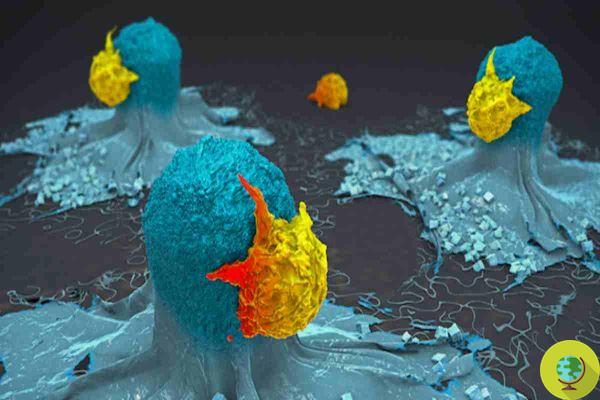
An unsuccessful clinical trial has led to a scientific breakthrough in cancer research. Researchers have identified ways to avoid cancer immunotherapy-related side effects for cancer patients.
Don't store avocado like this: it's dangerous
When some patients started showing side effects during a cancer immunotherapy, researchers from the La Jolla Institute for Immunology (LJI) Cancer Immunotherapy Center and the University of Liverpool looked at the data and worked to see what went wrong.
Their findings, published recently in Nature, provide clues as to why many immunotherapies trigger dangerous side effects.
(Read also: Skin cancers: goodbye biopsy? Here is the portable device that finds melanoma quickly and painlessly)
The researchers stated that:
In the world of oncology, immunotherapy has revolutionized the way we think about treatment. We can administer immunotherapies to patients even with metastatic and widespread diseases, and then only three years later say goodbye and tell them that their cancer is cured. This is a stunning change.
Unfortunately, some people don't see any changes after immunotherapy, while others develop serious lung, bowel, and even skin problems during treatment.
These side effects can be debilitating, even fatal, and patients are forced to stop receiving immunotherapy.
The researchers worked with samples from a recent clinical study in the UK for patients with head tumors and neck, who were given an oral immunotherapy called a PI3Kδ inhibitor.
- PI3Kδ inhibitors they hold good for their ability to inhibit 'regulatory' T cells (Tregs). These normally try to stop other T lymphocytes from targeting the body's tissues. Oncologists inhibit Tregs within tumors so that T cells can break free and generate cancer-killing cells.
Unfortunately, 12 of the 21 patients in the study had to stop treatment early because they developed colon inflammation.
According to the researchers, the patients were given a higher dose of PI3Kδ inhibitor than needed.
The pathway to toxicity seen in the new study could be broadly applicable to other organs that harbor similar Treg cells, and to other Treg cell-targeted immunotherapies.
The researchers' goal is to design a human clinical trial to identify the ideal dosing strategy.
Overall, the new study shows the importance of studying beyond personalized therapies, but also doses and personalized therapeutic programs.
Follow us on Telegram | Instagram | Facebook | TikTok | Youtube
Photos: Nature
On tumors could it be interesting for you:
- Right to be forgotten cancer: from mortgage to adoption, stories of denied rights for former cancer patients
- Breast Cancer: This substance in cardamom could be the key to blocking aggressive cancers
- Lung cancer: here are the microscopic worms that smell tumors before they show up
- Cancer: Vegetarians have a 14% lower risk of contracting cancer, a new study confirms
- Alcohol is carcinogenic: study confirms that its consumption is a direct cause of various cancers


























